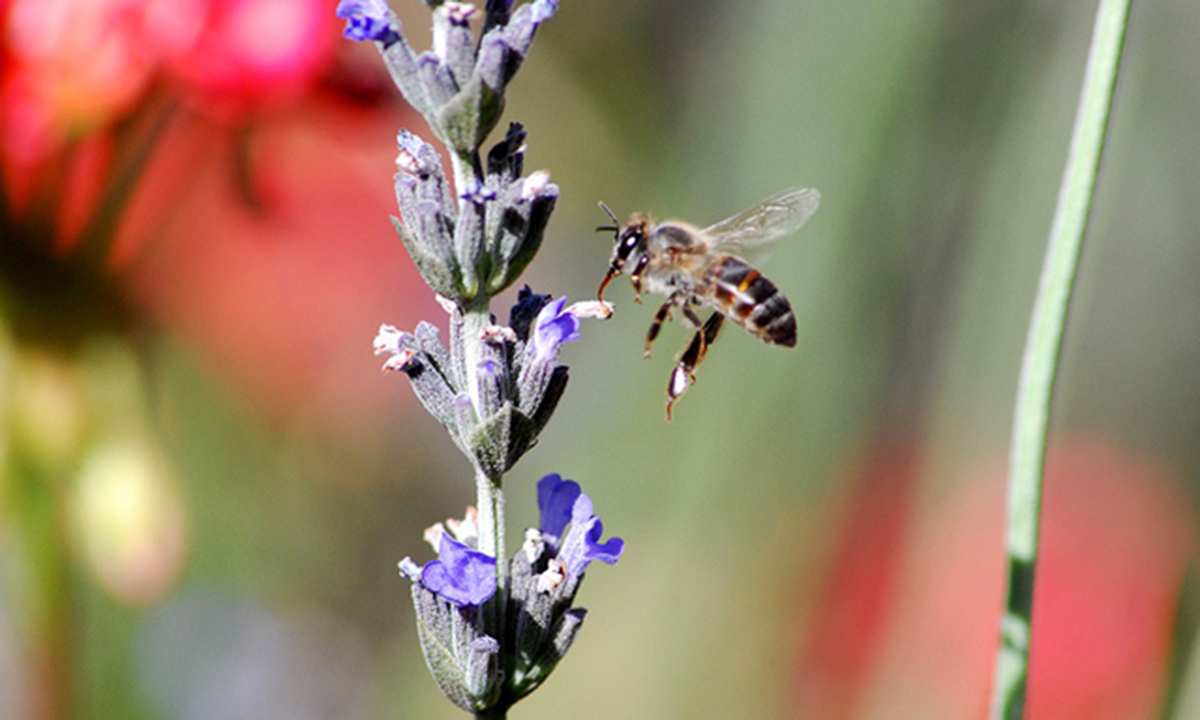Table of Contents
The philosophy behind using local honey as an allergy treatment is very simple, and based on the fact that bees gather pollen and nectar from flowers. Since there are countless different flowering plants throughout the world, the actual pollen and nectar found in honey will differ radically depending on where the honey is produced (by bees) and harvested (by man). So to be sure that the allergens that affect you are contained in the “local” honey you consume, it is important that you buy honey produced as close to your home as possible. The further away the hives are, the less effective honey will be as an allergy treatment, even if the honey is raw, unpasteurized and unfiltered.
Using raw honey for allergies is essentially a form of immunotherapy that American Honey Producers say should take four to six weeks to start working. The difference is that because the honey isn’t processed or the allergens in it measured, there is no way of knowing just how much pollen it contains. That said, there is a scientific technique called melissopalynology that can be used to identify the pollen found in honey, including its source. Ironically, this is widely stated as a reason so much natural honey is filtered, particularly honey imported to the USA from China – so that people won’t realize where it comes from.

Honey From China Will Not Help Allergies
The most obvious reason that honey imported from China won’t help allergies is that it would be impossible for it to contain local pollens if you don't live in that country – even if it wasn’t filtered, which all of it is. Worse, in 2002 the US Food and Drug Administration (FDA) found that some honey from China contained an unapproved broad-spectrum antibiotic. Further, in 2008 the US Immigration and Customs Enforcement (ICE) discovered that others countries, including Indonesia and Malaysia were relabeling Chinese honey in an attempt to circumvent US federal tariffs.
While consuming raw honey from South Carolina when you live in Georgia isn’t going to help your allergies, it’ll be a lot healthier and better for you than Chinese honey.
What Research Says About Relieving Allergy Symptoms
Unfortunately there has been minimal formal research into honey as an effective allergy treatment. Even informal researchers are divided in terms of how much, or even whether honey relieves the symptoms of allergies, even though there is considerable anecdotal “evidence” that it is effective.
The most commonly cited study by T.V. Rajan and several others on the Effect of injestion of honey on symptoms of rhinoconjunctivitis (2002) concluded that it was not possible to confirm that honey relieves the allergic symptoms of this disorder. The study, conducted at the health center at the University of Connecticut involved only 36 participants, all of whom had suffered from allergic rhinoconjunctivitis.
They were divided into three groups and given either local unpasterurized, unfiltered honey, honey that had been both filtered and pasteurized, or synthetic corn syrup “honey” – and ultimately none of the groups had more relief than the others. Unfortunately the Rajan study is still being referenced more than a decade after it was carried out, even though it has been reported that there were many problems that prove the study was not scientifically accurate. Specifically:
- The honey used for the study wasn’t tested for its actual pollen content
- Only two of the test subjects stated they had seasonal allergies correlating with pollen that would have been in the honey used
- The subjects who participated weren’t tested for pollen/allergen sensitivity
- Rajan is reported to have admitted he had too few subjects for the study to have been scientifically accurate
For this study titled Honey: A sweet relief? participants were also divided into three groups: those without allergies, those with seasonal allergies, and those who suffered from allergies all year round. These three groups were then sub-divided into three, with one group taking two teaspoons of local honey every day; another taking honey that wasn’t local; and the third not taking honey at all.
And it isn’t all theory. There are doctors who prescribe honey for allergies, including Dr Tony Vancauwelaert from the Swedish Covenant Hospital in Chicago. An independent, non-profit, teaching hospital, it has an excellent reputation and is affiliated with a number of other top health care organizations. Acknowledging the lack of formal research, Dr Vancauwelaert regards honey as a successful homeopathetic remedy for patients with allergies, and he often recommends it to his patients as a treatment option.
Personal Experience Of Allergies
As a highly allergic person, with obvious reactions to numerous allergens over time, including animal hair and dander, pollen, grass, sulfur, and bee stings, I’ve been treated with conventional antihistamines as well as homeopathetic remedies that have an effect similar to immunotherapy.
READ The Surprising Power Of Medicinal Honey For Skin Infections
As a child antihistamines tended to make me sleepy; new-age antihistamine therapies taken in adulthood make my eyes dry (a problem for contact lenses). While some homeopathic remedies, including tissue salts, have consistently given relief to ongoing mucous congestion and itchy eyes, the onset of spring (September where I live) invariably brings with it an intensity of symptoms, particularly when certain trees are flowering.
- americanhoneyproducers.org/relief-treatment-through-local-honey-for-allergies/
- http://acaai.org/allergies/treatment/allergy-testing
- acaai.org/allergies/treatment
- modernfarmer.com/2015/02/feds-seize-2-million-worth-illegal-chinese-honey/
- www.foodsafetynews.com/2013/02/honeygate-sting-leads-to-charges-for-illegal-chinese-honey-importation/#.VfFK9M7MeZY
- www.ncbi.nlm.nih.gov/pubmed/11868925
- www.twobeekeepers.com/raw-honey-for-allergies/
- www.swedishcovenant.org/community/well-community-articles/2014/06/23/can-local-honey-fight-off-allergies
- Photos courtesy of Janek Szymanowski ©
- Important notification about information and brand names http://www.steadyhealth.com/polices/terms-of-use#copyright


Your thoughts on this